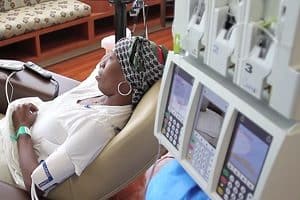
Cancer Treatments Questioned. According to a new study published in Cancer, a peer-reviewed journal of the American Cancer Society, there may be some bias issues with observational studies that compare outcomes of different cancer therapies, diminishing result credibility. According to the research, observational studies should include more complete information and be better designed to reduce […]

Cancer Treatments Questioned. According to a new study published in Cancer, a peer-reviewed journal of the American Cancer Society, there may be some bias issues with observational studies that compare outcomes of different cancer therapies, diminishing result credibility.
According to the research, observational studies should include more complete information and be better designed to reduce inaccuracies.
Observational studies are not clinical trials, which are considered the gold standard when revealing the effectiveness of new cancer treatments. Observational studies do not involve randomization; however, available data is analyzed for treatment comparisons and often used to provide information on how patients respond to particular drugs.
Often, investigators conduct observational studies by analyzing data from the Surveillance, Epidemiology, and End Results (SEER) Tumor Registry, a national population-based cancer registry that collects cancer-related data.
To determine observational study accuracy on cancer treatments, Dr. Sharon H. Giordano of the University of Texas MD Anderson Cancer Center in Houston and her colleagues compared the effectiveness of different cancer therapies in relation to prolonging survival rates in patients studied.
Data from the SEER registry was used and the group presented several examples, including re-analyses of previously published data. In every case, the group received improbable results, thus confirming it is relatively easy to generate questionable results when using an observational study as the foundation.
The group’s first analysis reviewed data on androgen deprivation hormone therapy in men with stage III prostate cancer. Randomized clinical trials indicated that androgen deprivation can improve survival. When the investigators conducted an observational review and analyzed data from the SEER registry of over 5,000 men, they found men treated with androgen deprivation actually had a higher risk of death from prostate cancer than men not receiving therapy.
Giordano and her team also re-analyzed data from a previously published study of over 43,000 men with localized prostate cancer and compared men who were treated with men who were not. As in the original study, researchers found men treated for prostate cancer experienced lower mortality rates and that, often, death was due to something other than prostate cancer.
The investigators also re-analyzed data from a previously published study on the effects of fluorouracil-based chemotherapy for colon cancer and realized the same conclusion as the original research, that chemotherapy for node positive colon cancer is associated with improved survival. But, the team also found that the treatment and survival link was strongest for non-cancer deaths, which presumably are not related.
The authors attributed the dubious results to selection biases. Selection bias occurs when patients with poorer prognoses are likelier to receive a more effective drug, or when patients with better health are more likely to receive a more toxic treatment because they can better tolerate it.
The authors concluded that their findings “suggest that the results of observational studies of treatment outcomes should be viewed with caution” and recommended that analyses of observational data should minimally attempt to segregate patient outcomes into those that could possibly be due to the treatments vs. those that could not.
Many observational studies on cancer treatments only report death rates from all causes and do not specify cancer-related deaths.
The personal injury attorneys at Parker Waichman LLP offer free, no-obligation case evaluations. For more information, fill out our online contact form or call 1-800-YOURLAWYER (1-800-968-7529).


